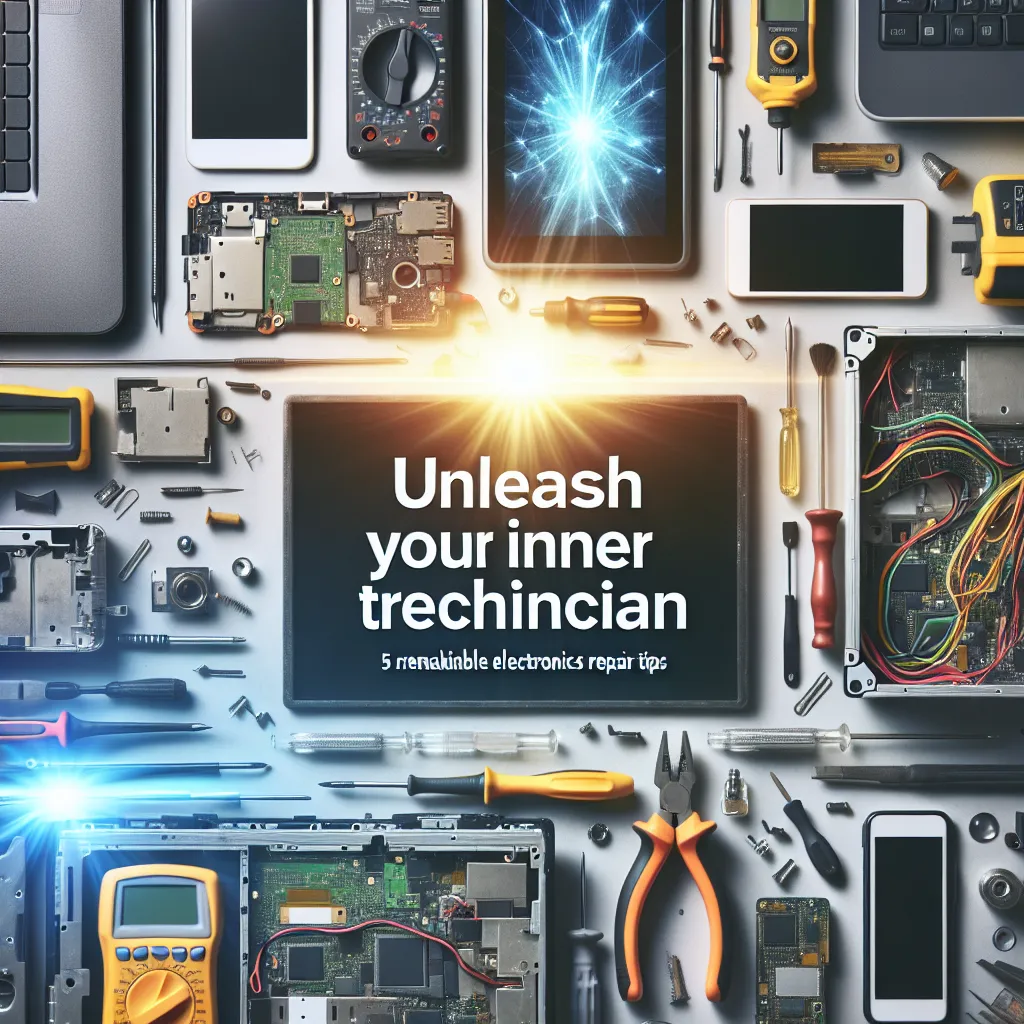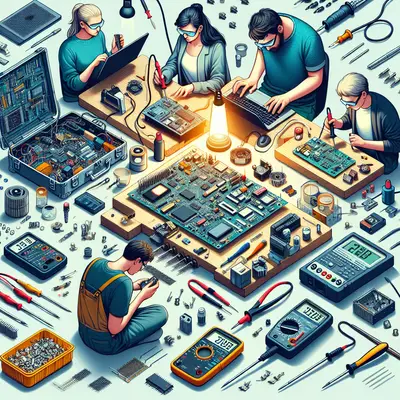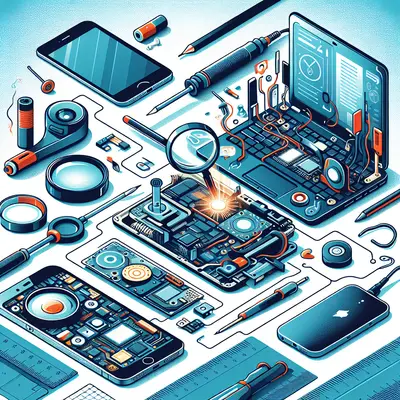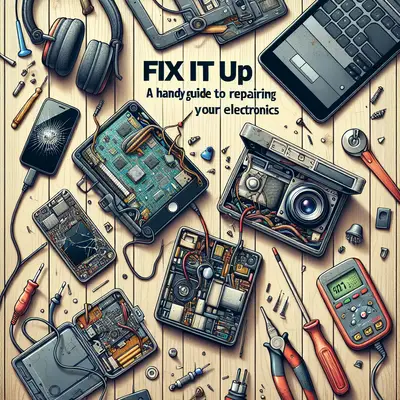Understand the Basics
Before diving headfirst into electronics repair, it's important to familiarize yourself with the basics. Understand the components, acquire knowledge about the functioning of different devices, and learn the safety precautions. Resources like books, online tutorials, and YouTube videos can be incredibly useful in this journey.
Invest in the Right Tools
Having the right set of tools is crucial when it comes to electronics repair. A basic kit should include a screwdriver set, tweezers, a multimeter, soldering iron, and a magnifying glass. Consider investing in a kit that is specifically meant for electronics to ensure you have the right tools at your disposal.
Practice Patience
Electronics repair is not a race, and rushing through the process can cause more harm than good. Be patient and take your time to understand the problem. Remember, haste makes waste, and in the world of electronics repair, haste can lead to irreversible damage.
Document Your Process
When disassembling a device, it's easy to forget where each piece came from. To avoid any confusion, document your process. Take pictures or make notes at each step. This will make reassembling the device much easier and ensure you don't end up with extra parts.
When in Doubt, Seek Help
Lastly, if you're unsure about something, don't hesitate to seek help. There are numerous online forums and communities where you can ask for advice or find solutions to common problems. Remember, asking for help is not a sign of weakness, but a step towards learning and improvement.
Conclusion
Embarking on the journey of electronics repair can be intimidating, but with the right approach and resources, you can become your own technician. Remember, practice makes perfect, so don't be discouraged if you encounter a few bumps along the way. With time and patience, you'll be fixing your devices like a pro in no time. And who knows? You might even discover a new hobby along the way!



